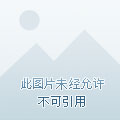Today to discuss an interesting problem, see "Emperor Wu of Han and His Times" found
First of all, let's think about it, what is the impression of Emperor Wudi of Han in our minds?
Great talent, pioneering territory... Still is
So let's take a look at the views of authoritative figures
First of all, Sima Qian, who was the same era as Emperor Wu of Han, only recorded his sealing activities and stories with some alchemists in the historical records, and did not judge them, but on the whole, there was still mustard, and at first the two got along well and appreciated each other, and Emperor Wu of Han called it: distinguishing between estrangement and overflowing with words
Later, because of the Li Ling incident, he was imprisoned, at this time forty-eight years old, and sentenced to death, two ways can be avoided, one is to enter half a million yuan can redeem death, and the other is the emperor's decree: those who want to corrupt for capital crimes are allowed

At the time of half a hundred years, faced with such a blow and a difficult choice, money is certainly not available, and the road to survival has to choose the "corrupt type", which is a great sin, and there is something heavier in the heart than humiliation, so it survives
Specific feelings and statements In his "Book of Ren An", he himself believes that of all the punishments under the world - the lowest punishment is extremely bad
There is very little ink about the contemporaneous Emperor Sima Qian of the Han Dynasty
We then look at Ban Gu, the Book of Han commentary: "If Emperor Wu's great talent is rough, he does not change the courtesy and frugality of Wenjing to help the people of Zi Simin, although the "Poems" and "Books" say that there is no jiayan"
That is to say, the most brilliant thing is his great talent, the centralization of power that began with Qin Shi Huang, in his operation for more than fifty years, has been further carried forward and practiced, the currency minting has been returned to the central government, the salt and iron have been nationalized, and the official system, calendar, and talent system have changed
Expeditions were fought in all directions and expanded the territory
The disadvantage is to use cool officials, increase taxes, squander, etc
The praise here is also the main basis for today's history books
Here we add some background information of the author himself to facilitate the understanding of his position and views
Ban Gu wrote the Book of Han, with a little meaning of inheriting his father's business, and his father Ban Biao initiated the project
They did this, there were two first opportunities, one of which was that the Ban family was not only a cultural family, but also had close relations with the royal family, and Ban Gu's aunt was the concubine of the HanCheng Emperor
Later, the Ban family obtained a set of copies of the palace collection, such as moving part of the Royal Library out, which at that time was extremely high, especially precious to the literati, which became an important and authoritative material for his compilation and arrangement of the Book of Han
At the same time, the book's stance and tendency is to support the Liu family's ~
He is both a Han Fu si and a historian, so the works here are more inclined to academic works
This was followed by a commentary by Sima Guang's Zizhi Tongjian more than a thousand years later: "Filial piety and extravagance, excessive punishment, moving inwards, believing in gods and monsters, wandering excessively, making the people tired and becoming thieves, so that there are few who are different from Qin Shi Huang."
Here the negatives and shortcomings are discussed, and the Bangu complements each other
In fact, why is there such a similarity and difference here
The Zizhi Tongjian was mainly edited during the reign of Emperor Shenzong of Song, and Sima Guang explained the history of Emperor Shenzong of Song for a period of time
That is to say, this was one of the important history textbooks of the royal family at that time, and Song Shenzong's lifelong wish was to expand the territory, so there were more warning doctrines here
At the same time, the Song also has a tradition, heavy literature, so the civilization is highly developed, then the story of Emperor Wu of the Han Dynasty takes more lessons
There are also some of Sima Guang's own insistences, in addition to exhortations, always concerned about the people's livelihood and alleviating the people's burden.
Therefore, it is fundamental to be more inclined to people's livelihood here
We put aside the comments of the three of you, and it is commendable to have such similarities and differences
In fact, ideas, books, or technology, and the emergence of systems are all born of use and luck
It is as interesting as I see three different assertions in the same person, so I comb through them, and the assertions are not in my mind, but in the cognition of each reader
Those I am interested in are more facts and truths, and the experiences and opinions of predecessors are the references and clues for our exploration
Observing their deeds, listening to their words, thinking about them, examining their circumstances, according to the time, studying their systems, asking for their texts, and grinding them one by one, all become experiences